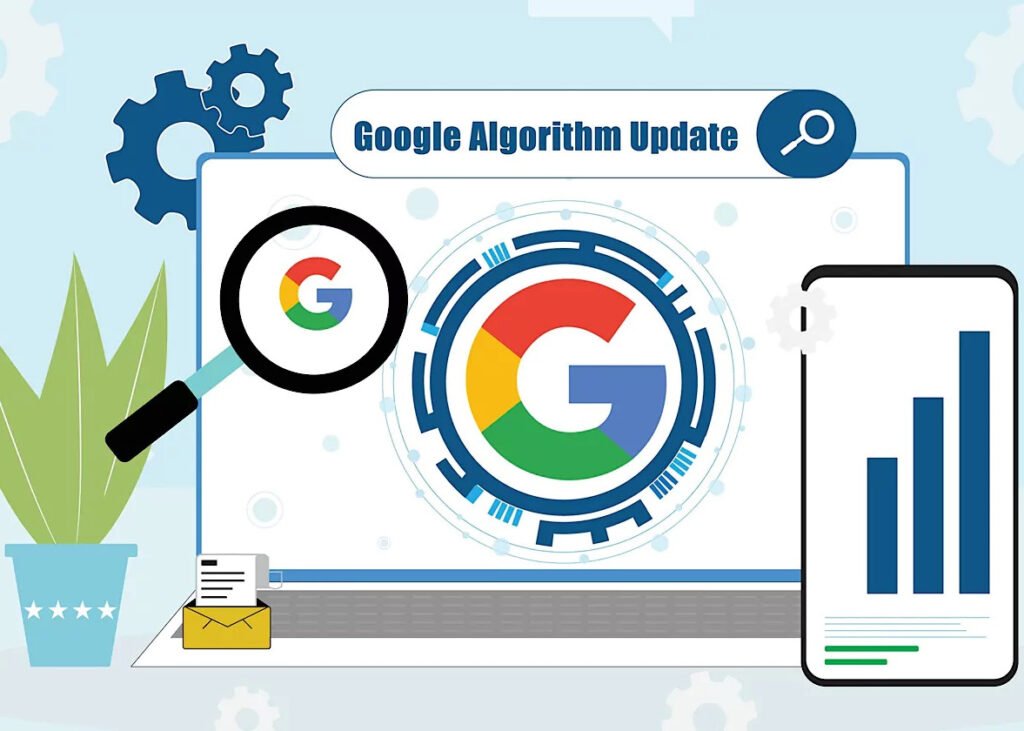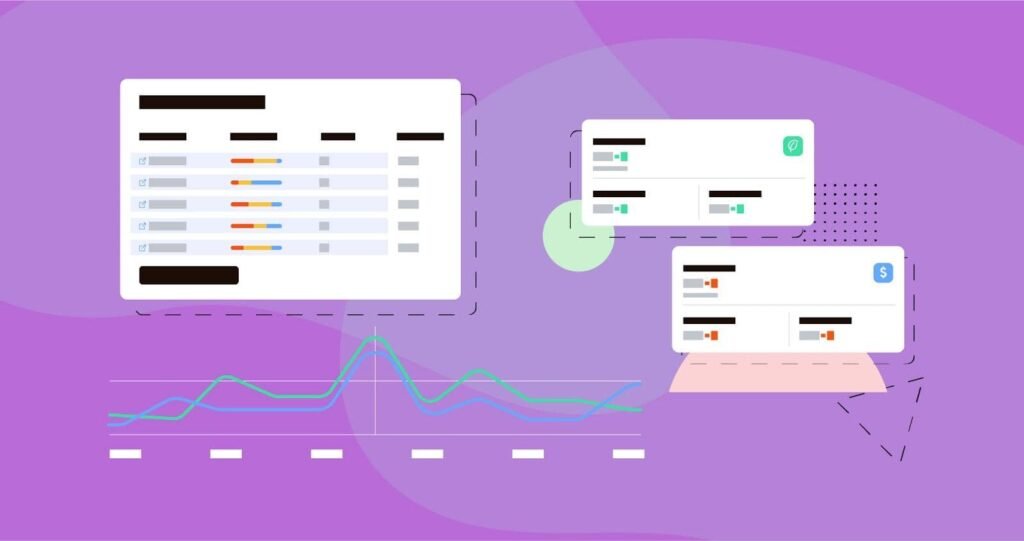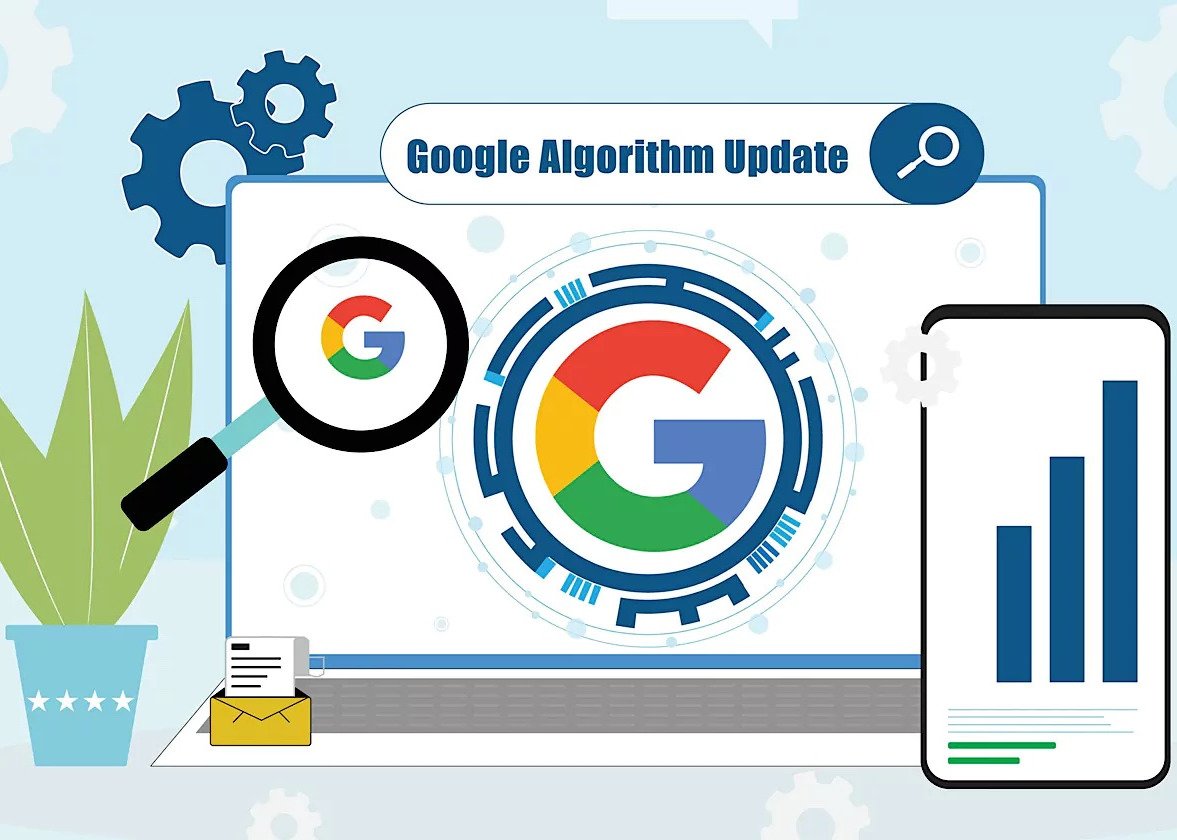How Google Algorithm Updates Have Shaped Off-Page SEO
Search engine optimization (SEO) is a dynamic and ever-evolving field, especially when it comes to off-page strategies. If you’re a small business in Sacramento, like many of the clients we serve at Social Peak Media, understanding how Google algorithm updates impact your off-page SEO efforts is critical to maintaining your online visibility and competitiveness. These updates can significantly influence how websites are ranked, with far-reaching implications for businesses that rely on organic search traffic.
In this article, we delve deep into the ways Google’s algorithm updates, particularly Penguin, have reshaped off-page SEO. We also provide practical advice on how to future-proof your strategy to weather future updates, and we highlight the crucial role of trust signals in Google’s algorithm. Finally, we share real-life case studies and actionable steps to help you adapt your off-page SEO efforts post-algorithm updates.

Surviving Google’s Penguin Updates: A Guide for Off-Page SEO
Google’s Penguin update, first introduced in 2012, marked a pivotal moment in the history of SEO. Prior to Penguin, the SEO landscape was often dominated by those who could generate the most backlinks, regardless of their quality. Many businesses engaged in manipulative practices such as link schemes, buying links, and participating in link networks to boost their search rankings. These tactics, while effective in the short term, ultimately led to a polluted search environment, where search results were not always relevant or helpful to users.
The Penguin update changed all that. It was designed to target websites that engaged in manipulative link-building practices, specifically those with unnatural link profiles. Websites that had relied on spammy backlinks saw their rankings plummet, sometimes overnight. Suddenly, the quality of backlinks became far more important than the quantity.

For small businesses, especially those in local markets like Sacramento, the impact of Penguin was profound. At Social Peak Media, we’ve helped numerous businesses recover from Penguin penalties and rebuild their online presence with sustainable, long-term SEO strategies. Here’s how we approach off-page SEO in a post-Penguin world:
- Conduct Regular Link Audits: We start by thoroughly examining your backlink profile to identify any low-quality or suspicious links that could be harming your site. This is an ongoing process, as the quality of backlinks can change over time.
- Focus on High-Quality, Relevant Links: Quality over quantity is the guiding principle. We work to secure backlinks from reputable sources that are relevant to your industry or local area. For example, a Sacramento restaurant might benefit from links from local food bloggers, community event sites, or regional business directories.
- Build Relationships: Networking within your industry and community can lead to natural link-building opportunities. By contributing to local events, sponsoring community activities, or collaborating with other local businesses, you can earn valuable backlinks while also enhancing your brand’s visibility.
- Diversify Your Link Profile: Relying on a single type of backlink can be risky. We recommend diversifying your link profile with a mix of guest posts, local citations, social media mentions, and directory listings. This creates a more natural and resilient link profile.
The takeaway from the Penguin updates is clear: building a strong, sustainable off-page SEO strategy requires a focus on quality and relevance. By avoiding manipulative tactics and prioritizing genuine, high-value links, you can protect your website from future penalties and maintain strong search rankings.
How to Future-Proof Your Off-Page SEO Against Algorithm Changes
SEO is not a static field. With Google making hundreds of updates to its algorithm each year, businesses must stay agile and forward-thinking to maintain their search rankings. For small businesses in Sacramento, the ability to adapt to these changes can be the difference between thriving online and disappearing into obscurity.

At Social Peak Media, we believe in a proactive approach to off-page SEO. Rather than reacting to algorithm changes after they happen, we focus on building a strategy that is resilient and adaptable. Here’s how you can future-proof your off-page SEO efforts:
Prioritize Content Quality: High-quality content is the foundation of a successful SEO strategy. While content creation is often considered an on-page tactic, it’s crucial for off-page SEO as well. Great content naturally attracts backlinks from other websites, which enhances your off-page SEO.
Focus on creating content that is informative, engaging, and shareable. This might include blog posts, infographics, videos, or other types of content that offer value to your audience.
Build Strong Industry Relationships: Networking is a powerful tool for off-page SEO. By building strong relationships with other businesses, influencers, and industry leaders, you create opportunities for collaboration, guest posting, and other link-building activities. These relationships often lead to natural backlinks that are highly valued by Google.
Leverage Social Media: While social signals are not a direct ranking factor, a strong social media presence can amplify your content’s reach and indirectly contribute to your off-page SEO. Share your content across social media platforms to increase its visibility and attract more backlinks. Additionally, engage with your audience on social media to build trust and credibility, which can lead to more brand mentions and backlinks.
Stay Informed About SEO Trends: The SEO landscape is constantly evolving, and staying informed is key to staying ahead. Regularly read SEO blogs, attend webinars, and follow industry leaders to keep up with the latest trends and algorithm updates. This knowledge allows you to anticipate changes and adjust your strategy accordingly, rather than being caught off guard.
Embrace Local SEO Practices: For Sacramento businesses, local SEO is critical. Building local citations, earning reviews on local platforms, and getting mentioned in local news or blogs can all contribute to a stronger off-page SEO profile. Local backlinks are often more relevant and trusted by Google, especially for businesses that rely on local customers.
Future-proofing your off-page SEO strategy is about being adaptable, informed, and focused on quality. By building a resilient strategy today, you can protect your website from the unpredictable nature of algorithm updates and continue to grow your online presence.
The Role of Trust Signals in Google’s Algorithm
Trust is a cornerstone of Google’s algorithm, especially in the context of off-page SEO. Trust signals are the indicators that Google uses to assess the credibility and reliability of your website. These signals include backlinks from authoritative sites, brand mentions, online reviews, and the overall consistency of your online presence.

For Sacramento small businesses, building trust signals is crucial for improving search rankings and attracting more customers. At Social Peak Media, we emphasize the importance of trust signals in our off-page SEO strategies. Here’s how we help businesses build and maintain trust in the eyes of Google:
- Earn High-Authority Backlinks: Backlinks from reputable, high-authority websites are one of the strongest trust signals. These links indicate that your content is valuable and trustworthy. To earn these backlinks, focus on producing high-quality content that other websites in your industry will want to link to. Additionally, consider guest posting on authoritative sites or collaborating with industry leaders to gain valuable backlinks.
- Manage Online Reviews: Online reviews are a significant trust signal, especially for local businesses. Positive reviews on platforms like Google My Business, Yelp, and industry-specific review sites contribute to your website’s overall trustworthiness. Encourage satisfied customers to leave reviews, and be sure to respond to both positive and negative feedback professionally. This shows potential customers—and Google—that you are attentive and responsive to customer concerns.
- Brand Mentions: Even when they don’t include a direct link, brand mentions across the web contribute to trust signals. Being mentioned in news articles, blogs, or social media discussions can enhance your brand’s credibility and visibility. Monitor your brand mentions using tools like Google Alerts or social media listening tools, and engage with those who mention your brand to build relationships and encourage future backlinks.
- Ensure Consistent NAP Information: Consistency is key when it comes to trust signals. Ensure that your Name, Address, and Phone number (NAP) are consistent across all online directories and citations. Inconsistent information can confuse both customers and search engines, leading to lower trust and potentially harming your local SEO efforts.
Building trust signals is an ongoing process, but the rewards are well worth the effort. By focusing on these strategies, you can enhance your website’s credibility, improve your search rankings, and attract more customers.
Case Studies: Off-Page SEO Success After Major Algorithm Updates
Real-world examples are often the best way to illustrate the impact of off-page SEO strategies. At Social Peak Media, we’ve helped numerous Sacramento-based small businesses navigate the challenges of Google’s algorithm updates and achieve success through strategic off-page SEO. Here are a couple of case studies that highlight the effectiveness of our approach:

Case Study 1: Recovering from a Penguin Penalty
One of our clients, a local boutique in Sacramento, saw a significant drop in traffic following the initial Penguin update. Their website had been relying on a high volume of low-quality backlinks from unrelated sites, which led to a penalty from Google. The impact was immediate and severe, with their search rankings plummeting almost overnight.
We began by conducting a comprehensive link audit to identify the problematic backlinks that were contributing to the penalty. After disavowing these links and removing as many as possible, we shifted our focus to building high-quality, relevant backlinks. We reached out to local bloggers, collaborated with other small businesses in the community, and participated in local events to earn valuable backlinks.
The results were remarkable. Within a few months, the boutique’s traffic began to recover, and their search rankings steadily improved. Today, they enjoy higher visibility and more organic traffic than they did before the Penguin update.
Case Study 2: Building Trust Signals for a Local Law Firm
Another client, a Sacramento-based law firm, was struggling with online visibility due to a lack of trust signals. Their website had few backlinks,
minimal online reviews, and inconsistent NAP information across various directories. As a result, they were not ranking well in search results, and their online presence was limited.
We implemented a comprehensive off-page SEO strategy focused on building trust signals. First, we worked with the firm to create high-quality content that could attract backlinks from authoritative legal websites and local directories. We also encouraged their satisfied clients to leave positive reviews on Google My Business and other review platforms.
To address the NAP inconsistency, we audited all their online listings and corrected any discrepancies. Additionally, we helped them secure mentions in local news articles and blogs by sponsoring community events and participating in local legal discussions.
Over time, these efforts paid off. The law firm’s website climbed the search rankings, leading to a significant increase in organic traffic and new client inquiries. Their improved online presence and credibility have positioned them as a leading legal service provider in Sacramento.
These case studies demonstrate the importance of a strategic and adaptive approach to off-page SEO. By focusing on quality backlinks, trust signals, and local SEO practices, even small businesses can achieve significant gains in the face of major algorithm updates.
How to Adapt Your Off-Page SEO Strategy Post-Algorithm Update
When Google rolls out a new algorithm update, it can feel like the digital landscape has suddenly shifted beneath your feet. Rankings may fluctuate, traffic patterns can change, and previously successful strategies might lose their effectiveness. However, these updates also present an opportunity to refine and improve your off-page SEO efforts.

At Social Peak Media, we recommend the following steps to adapt your off-page SEO strategy after a major algorithm update:
- Analyze the Update’s Impact: The first step is to assess how the update has affected your website. Use tools like Google Analytics and Google Search Console to monitor changes in traffic, rankings, and user behavior. Identify any significant drops or gains and investigate the potential causes. This analysis will help you understand what aspects of your off-page SEO may need adjustment.
- Review Google’s Official Guidelines: After a major update, Google often provides insights or guidelines about the changes. Review these guidelines carefully to understand what the update was designed to address. This information can provide valuable clues about how to adjust your off-page SEO strategy to align with Google’s new priorities.
- Conduct a Link Audit: If the update appears to target spammy or low-quality backlinks, it’s essential to conduct a thorough audit of your link profile. Identify any links that could be considered unnatural or manipulative, and take steps to disavow or remove them. A clean, high-quality link profile is crucial for maintaining your rankings post-update.
- Double Down on Quality Content: Content quality remains a critical factor in off-page SEO. In the wake of an algorithm update, focus on creating even higher-quality content that naturally attracts backlinks. This could involve updating existing content to make it more comprehensive or creating new content that addresses current trends or user needs.
- Monitor Performance and Adjust as Needed: SEO is not a one-time effort but an ongoing process. After implementing changes, continue to monitor your website’s performance to see how it responds. Be prepared to make further adjustments as needed based on the results. This iterative approach will help you stay ahead of future updates and maintain your competitive edge.
Adapting your off-page SEO strategy after an algorithm update is about being proactive and responsive. By quickly assessing the impact, addressing any issues, and focusing on quality and relevance, you can minimize the negative effects and continue to grow your online presence.
Disclosure: Our blog contains affiliate links to products. We may receive a commission for purchases made through these links. However, this does not impact our reviews and comparisons. We try our best to keep things fair and balanced, in order to help you make the best choice for you.












